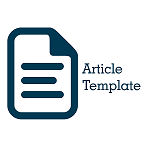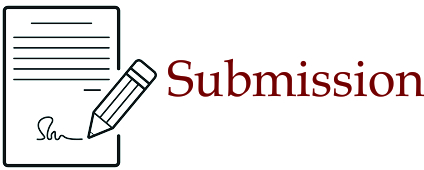Implementasi Pengadaaan Sarana Dan Prasarana Pendidikan Madrasah Dengan SIM-SARPRAS
Abstract
Keywords
Full Text:
PDFReferences
Adisel, A., & Thadi, R. (2020). Sistem Informasi Manajemen Organisasi Perannya dalam Pengambilan Keputusan dan Pemecahan Masalah. Journal Of Administration and Educational Management (ALIGNMENT), 3(2), 145–153. https://doi.org/10.31539/alignment.v3i2.1579
Azizi, H., Lubis, F. A., & Syafina, L. (2023). Analisis Akuntabilitas Dan Tranparansi Pengelolaan Dana Bantuan Operasional Sekolah Di MTs Nurhasanah Balai Jaya. Jurnal Manajemen, Ekonomi, Hukum, Kewirausahaan, Kesehatan, Pendidikan dan Informatika (MANEKIN), 2(1 : September), 42–49.
Budihardjo, M. (2014). Panduan praktis menyusun SOP (Standard Operating Procedure) (Cet. 3). Jakarta: Raih Asa Sukses.
Fatmawati, N., Mappincara, A., & Habibah, S. (2019). Pemanfaatan Dan Pemeliharaan Sarana Dan Prasarana Pendidikan. PEMBELAJAR: Jurnal Ilmu Pendidikan, Keguruan, dan Pembelajaran, 3(2), 115–121. https://doi.org/10.26858/pembelajar.v3i2.9799
Haryanto, D., & Hadilinatih, B. (2022). Analisis Kualitas Pelayanan Publik Unit Layanan Terpadu (ULT) Satu Pintu Kementerian Pendidikan Kebudayaan Riset dan Teknologi Di DIY. Jurnal Enersia Publika: Energi, Sosial, dan Administrasi Publik, 6(2), 95–108.
Inkiriwang, R. R. (2020). Kewajiban Negara Dalam Penyediaan Fasilitas Pendidikan Kepada Masyarakat Menurut Undang-Undang Nomor 20 Tahun 2003 Tentang Sistem Pendidkan Nasional. LEX PRIVATUM, 8(2). Diambil dari https://ejournal.unsrat.ac.id/v3/index.php/lexprivatum/article/view/29792
Irianto, A. (2017). Pendidikan Sebagai Investasi Dalam Pembangunan Suatu Bangsa. Jakarta: Kencana.
Malau, T. F., Harianja, K. N., Simarmata, Y., & Turnip, H. (2022). Pentingnya Administrasi Sarana Dan Prasarana Pendidikan. Dewantara : Jurnal Pendidikan Sosial Humaniora, 1(4), 186–195. https://doi.org/10.30640/dewantara.v1i4.462
Masykuri, M. S., & Suryobroto, A. S. (2019). Kreativitas Guru Pendidikan Jasmani Olahraga Dan Kesehatan Dalam Mengatasi Keterbatasan Sarana Dan Prasarana Di Sekolah Menengah Kejuruan Swasta Se-Kabupaten Bantul. Pendidikan Jasmani Kesehatan dan Rekreasi, 8(9).
Mayasari, A., Supriani, Y., & Arifudin, O. (2021). Implementasi Sistem Informasi Manajemen Akademik Berbasis Teknologi Informasi dalam Meningkatkan Mutu Pelayanan Pembelajaran di SMK. JIIP - Jurnal Ilmiah Ilmu Pendidikan. Diambil dari http://jiip.stkipyapisdompu.ac.id/jiip/index.php/JIIP/article/view/277
Miles, M. B., Huberman, A. M., & Saldaña, J. (2014). Qualitative Data Analysis: A Methods Sourcebook. California: SAGE Publications.
Oktavia, D., Trihantoyo, S., & Windasari, W. (2023). Pengelolaan Dana Bantuan Operasional Sekolah (BOS) di SDN Tambaksari I. Journal on Education, 5(4), 16371–16378.
Panggabean, S., Widyastuti, A., Subakti, H., Rosadi, T., & Salim, N. A. (2022). Pengantar Manajemen Pendidikan. Medan: Yayasan Kita Menulis.
Pramitha, D. (2017). Pergeseran Paradigma Sistem Informasi Manajemen. J-MPI (Jurnal Manajemen Pendidikan Islam), 2(1), 22–27. https://doi.org/10.18860/jmpi.v2i1.4356
Prasojo, L. D. (2013). Sistem Informasi Manajemen Pendidikan. Yogyakarta: UNY Press.
Purwaningsih, Y. (2022). Implementasi sistem informasi manajemen pendidikan (SIMDIK) dalam meningkatkan mutu pendidikan di Madrasah Ibtidaiyah. Borobudur Educational Review, 2(2), 68–76.
Ramli, S. (2013). Bacaan Wajib Para Praktisi Pengadaan Barang/Jasa Pemerintah. Jakarta: Visimedia.
Romlah, S., Imron, A., Maisyaroh, Sunandar, A., & Dami, Z. A. (2023). A free education policy in Indonesia for equitable access and improvement of the quality of learning. Cogent Education, 10(2), 2245734. https://doi.org/10.1080/2331186X.2023.2245734
Rowe, E., & Perry, L. B. (2020). Inequalities in the private funding of public schools: Parent financial contributions and school socioeconomic status. Journal of Educational Administration and History, 52(1), 42–59. https://doi.org/10.1080/00220620.2019.1689234
Septa, F., Yudhana, A., & Fadlil, A. (2019). Analisis Kualitas Layanan E-Government dengan Pendekatan E-GovQual Modifikasi. Jurnal Sistem Informasi Bisnis, 9(2), 157–164. https://doi.org/10.21456/vol9iss2pp157-164
Solihah, Y. (2019). Implementasi Sistem Informasi Manajemen (SIM) Dalam Meningkatkan Tata Kelola Madrasah Tsanawiyah Al-Ishlah Cirebon Indonesia. Edulead: Journal of Education Management, 1(1), 83–100.
Sonia, N. R. (2021). Implementasi Manajemen Sarana Prasarana Pendidikan di Madrasah Aliyah Swasta. JIEMAN: Journal of Islamic Educational Management, 3(2), 237–256. https://doi.org/10.35719/jieman.v3i2.95
Sugiyono. (2021). Metode Penelitian Pendidikan: Kuantitatif, Kualitatif, Kombinasi, R&D dan Penelitian Pendidikan. Bandung: Alfabeta.
Tanggela, M. (2013). Analisis Implementasi Kebijakan Pengelolaan Sarana dan Prasarana Sekolah Di SMP Negeri 2 Batu. Jurnal Kebijakan dan Pengembangan Pendidikan, 1(1). Diambil dari http://ejournal.umm.ac.id/index.php/jkpp/article/view/1505
Yunus, F., Arwildayanto, A., Sulkifly, S., & Ardhian, N. L. (2023). Tata Kelola Sarana dan Prasarana Berbasis Teknologi dan Informasi. Student Journal of Educational Management, 158–176.
DOI: https://doi.org/10.18860/jmpi.v9i2.29982
Refbacks
- There are currently no refbacks.
Copyright (c) 2024 Nabila Jovani Putri, Walid Fajar Antariksa

This work is licensed under a Creative Commons Attribution-ShareAlike 4.0 International License.
Fakultas Ilmu Tarbiyah dan Keguruan
Universitas Islam Negeri Maulana Malik Ibrahim Malang
Jalan Gajayana 50 Malang 65144, Jawa Timur, Indonesia
Telp/Fax: +62341-552398 Email: jmpi@uin-malang.ac.id

This work is licensed under a Creative Commons Attribution-ShareAlike 4.0 International License.
INDEXED BY:
















